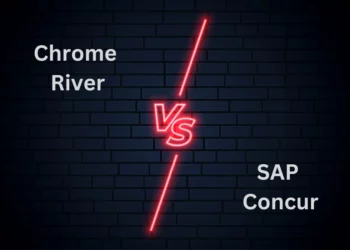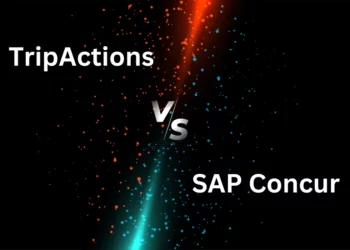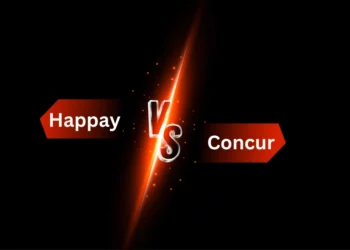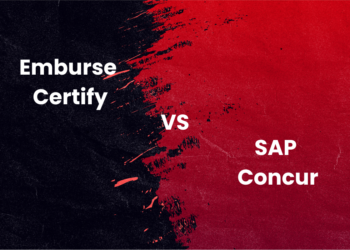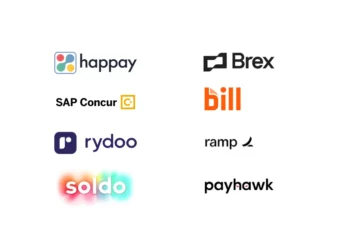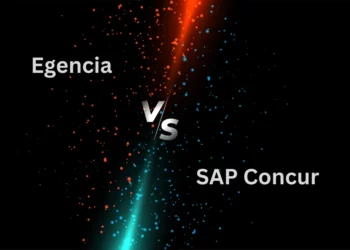Introduction
Over 41% of small business owners in the US prefer to take care of their accounting processes without the help of accountants or accounting software. Naturally, this has given way to a lot of demand for free accounting software.
While accounting tasks can be done manually to a certain extent with spreadsheets and other tools, you need to offload a part of it to software to help ensure no errors slip through and make life easy.
This is where accounting software comes in to take the burden off.
Accounting software helps record financial transactions, manages redundant daily activities, and provides many other benefits.
In this article, we’ll take a look at some of the best small business accounting solutions in 2023 and cover some basics, such as definitions, benefits, drawbacks, and more!
Best free accounting software
Best free accounting software in 2023: An overview
Here are the 8 best small business accounting software in 2023.
1. Xero
Xero is a popular small business accounting software. It offers everything you need to help manage financial processes efficiently. With a user-friendly interface and robust functionality, Xero simplifies invoicing, bank reconciliation, expense tracking, inventory management, and financial reporting tasks.

Features
- Workflow automation
- Performance tracking
- Auditing trail
- Journal entry management
- Custom reporting capabilities
Benefits
- Extensive marketplace
- Easy to use, even for people without an accounting background
- Easy to upload documents remotely
Drawbacks
- The updates prove to be an inconvenience sometimes
- Its search capabilities aren’t on par with other solutions in the market
Pricing
Xero offers 3 paid plans: Starter, Standard, and Premium, which cost $13, $37, and $70 per month, respectively.
Reviews
Xero has an average rating of 4.3 out of 5 based on 543 reviews on G2.com.
Conclusion
Xero is ranked as one of the leading accounting software on G2 for small businesses, according to the Summer GRID report. It’s reliable and has been in the market for a long time.
Quick Read: 10 Best Project Management Software
2. Freshbooks
FreshBooks is an accounting solution designed primarily for small businesses and self-employed professionals. This accounting app helps simplify the accounting and invoicing processes, allowing users to manage their finances more efficiently. FreshBooks provides various features and tools to handle tasks such as invoicing, time tracking, expense management, project management, and reporting.

Features
- Expense management
- Time tracking
- Project management
- Reporting
- Mileage tracking
- Mobile application
Benefits
- Time account monitoring is straightforward
- Easy-to-use solution
- Helps track invoices easily
Drawbacks
- Doesn’t help perform all accounting-related tasks in a single platform
- Support is not on par with other solutions in the market
Pricing
Based on requirements, Freshbooks offers 3 paid plans, starting from $8.50, $15, and $22 per month. They also offer custom plans.
Reviews
Freshbooks is rated 4.5 out of 5 stars based on 665 reviews on G2.com.
Conclusion
Freshbooks is a leading small business accounting solution and is constantly ranked a top 10 solution for the market segment.
Read About: 10 Best Expense Management Software and Tools
3. Quickbooks Online
QuickBooks Online is a one-stop accounting software built by Intuit. It is designed to meet small businesses’ accounting and financial management needs. It offers many features and tools to help users with different tasks.

Features
- Audit trail
- Custom invoice generation
- Output document generation
- Budgeting and forecasting
- Expense and accounts management
Benefits
- Great technical support
- Easy to navigate and find what you’re looking for
Drawbacks
- The mobile app is not easy to use
- The solution could also be glitchy at times
Pricing
Quickbooks Online offers 4 paid plans, starting from $20, $40, $70, or $150 per month.
Reviews
Quickbooks Online is rated 4 out of 5 stars based on 3114 reviews on G2.com.
Conclusion
Quickbooks Online is one of the most popular small business accounting solutions and has a large customer base. Coupled with great customer support, one should go for it if they’ve never used a solution before.
Suggested Read: 10 Best Financial Management Tools for CFOs
4. Wave
Wave accounting software is a user-friendly solution designed for small businesses. It offers a range of essential features to help users manage their finances efficiently. Wave helps users create and customize professional invoices, track expenses, connect bank accounts for seamless transaction importing, and generate financial reports. Wave stands out for its intuitive interface, accessibility, and cost-effectiveness, making it a popular choice for accounting needs.

Features
- AR automation
- Tag setting and dimension modification
- Reconciliations
- Payment processing
- Mobile app on Android or iOS and other operating systems
Benefits
- Overall a very easy-to-use solution
- Helps perform billing tasks easily and quickly
Drawbacks
- It’s hard to set up payments manually
- Customer support is not that great
Pricing
You can contact Wave to learn more about their pricing structure. Wave Plus costs $150 per month to use.
Reviews
Wave is rated 4.4 out of 5 stars based on 286 reviews on G2.com.
Conclusion
Wave is one of the fastest-growing accounting solutions for small businesses.
Quick Read: 12 Best Invoicing Software [Paid+Free] in 2023
5. FreeAgent
FreeAgent offers a comprehensive suite of features to simplify financial management and streamline administrative tasks. With the solution, users can create invoices, track expenses, manage projects, integrate with their bank accounts, handle tax calculations, and generate insightful financial reports. The software’s user-friendly interface and automation capabilities make staying organized and on top of financial matters easy.

Features
- Easy-to-customize solution
- Financial statement generation
- Time and expense management
- AR automation
- Works on Mac or Desktop
Benefits
- Helps keep all records in a single place
- Easy to share relevant information and provide context
Drawbacks
- Does not integrate with a few cards, such as American Express
- Requires extensive training to use
Pricing
FreeAgent’s priced plans start from $20 per month. Contact them to know more.
Reviews
FreeAgent is rated 4.3 out of 5 stars based on 37 reviews on G2.com.
Conclusion
FreeAgent is a High Performer on G2 in the small business accounting software category.
Read About: 10 Best Expense Reporting Software Systems and Tools
6. Zoho Books
Zoho Books is a financial management solution for small businesses and freelancers. It has comprehensive features and tools to handle various accounting tasks, including invoicing, expense tracking, banking integration, inventory management, and reporting. With Zoho Books, users can efficiently manage their finances, gain insights into their business performance, and streamline day-to-day accounting operations.
It combines the functionalities of bookkeeping software and payroll software into a single solution.

Features
- Payments and reconciliations
- Workflow automation
- Performance and reliability tracking
- Integration open APIs
- Online payments
- Payment reminders
- Unlimited invoices
Benefits
- The dashboard can be easily customized
- Has a very good user interface
Drawbacks
- The customer support is very poor
- There are general bugs and glitches in the app
Pricing
Zoho Books offers a free forever plan. Aside from this, their paid plans start from $15, $40, and $60 per month. It also offers a free trial.
Reviews
Zoho Books is rated 4.5 out of 5 stars based on 168 reviews on G2.com.
Conclusion
Zoho Books is one of the top 50 accounting solutions for small businesses on G2 in the small business accounting software category.
Quick Read: 8 Best Inventory Management Software
7. Sage Intacct
Sage Intacct offers a comprehensive suite of features to streamline financial processes, improve accuracy, and provide real-time visibility into the company’s financial health.
With Sage Intacct, users can manage core accounting functions such as general ledger, accounts payable and receivable, cash management, and financial reporting. The software also offers advanced capabilities like multi-entity and multi-currency support, project accounting, revenue recognition, and budgeting and planning.

Features
- Auditing trail Benefits
- Easy to use out of the box
- Frequent updates to improve user experience
Drawbacks
- Gaining access to some data is difficult
- Some user-interface level functionalities are missing
Pricing
Sage Intacct offers a free plan, but you will have to contact them to know more about their pricing.
Reviews
Sage Intacct is rated 4.3 out of 5 stars based on 2244 reviews on G2.com.
Conclusion
Sage Intacct is a widely used small business accounting software and has a large set of customers.
Read About: 10 Best Accounts Payable (AP) Software in 2023
8. BQE Core
BQE Core is a comprehensive account management software designed for professional services firms such as architecture, engineering, accounting, consulting, and legal. It offers a range of features to streamline various aspects of business operations, including project management, time and expense tracking, billing and invoicing, accounting, and reporting.
BQE Core provides a centralized platform that allows firms to effectively manage projects, allocate resources, track time and expenses, and monitor project profitability. The software’s robust billing and invoicing capabilities enable accurate and efficient invoicing processes, while its integrated accounting module ensures seamless financial management.

Features
- Automated reminders
- Extensive reporting capabilities
- Billable time rate management
Benefits
- Easy to create expense reports
- Completing timesheets is very easy
Drawbacks
- The solution does not perform well
- It lacks some accounting functionalities
Pricing
BQE Core’s pricing information is unavailable online.
Reviews
BQE Core is rated 4.4 out of 5 stars based on 338 reviews on G2.com.
Conclusion
BQE Core has one of the highest user adoption rates, according to G2.
Suggested Read: Expense Accounting: Meaning, Types, Methods, Procedures & Software
What is accounting software?
Accounting software is designed to assist individuals and businesses in managing their financial transactions, records, and reporting.
It automates and streamlines accounting processes such as bookkeeping, invoicing, budgeting, financial analysis, and tax calculations.
Accounting software helps track income, expenses, assets, liabilities, and other financial aspects, providing accurate and organized financial data for businesses to make informed decisions and meet their reporting requirements.
Benefits of using free accounting software
From being super cost-efficient to providing capabilities to handle basic financial tasks, here are some of the benefits of using a free accounting software:
- Cost-effective: Free accounting software crosses the need for upfront expenses or ongoing subscription fees, making it a budget-friendly option for small businesses with limited financial resources.
- Basic financial management: It provides essential tools for managing income, expenses, invoicing, and basic bookkeeping tasks, allowing businesses to maintain financial records and track their financial health.
- Ease of use: Many free accounting software are designed with user-friendly interfaces, making them accessible and easy to navigate for individuals with limited accounting knowledge or experience.
- Accessibility: Accounting software is cloud-based, enabling users to access their financial data and perform accounting tasks from anywhere with an internet connection, increasing convenience and flexibility.
- Simplified tax calculations: Accounting software offers basic tax reporting features, assisting businesses in generating financial reports and calculations necessary for tax preparation.
- Scalability: While free accounting software has limitations, it accommodates the needs of small businesses at their early stages. As the business grows, it is easier to transition to more advanced paid accounting solutions.
Quick Read: 11 Best Billing Software for Businesses
What are the common features of free accounting software?
While the features of accounting software vary according to the provider, there are some common ones, and these are:
- Income and expense tracking: Helps record and categorize income and expenses, helping businesses monitor cash flow and analyze financial performance.
- Invoicing and billing: Provides access to tools for creating and sending professional invoices to clients or customers, tracking payments, and managing accounts receivable.
- Bank reconciliation: The capability to reconcile bank statements with recorded transactions to ensure accuracy and identify any discrepancies.
- Financial reporting: Basic reporting features that generate financial statements, such as profit and loss statements, balance sheets, and cash flow statements, providing insights into business performance.
- Account charts: A predefined or customizable list of accounts used to categorize and organize financial transactions.
- Tax calculations: Basic tax-related features that assist with calculating sales tax, VAT, or GST and generating tax reports to help with tax preparation.
- Basic inventory management: Some free accounting software includes basic inventory management features to track inventory levels, record purchases and sales, and manage stock.
- Data backup and security: While the extent varies, free accounting software offers basic data backup and security measures to protect financial data from loss or unauthorized access.
How to choose and get free accounting software?
To choose and get free accounting software, follow these steps:
- Ask yourself what your needs are. Determine your specific accounting requirements. Consider the size of your business, the complexity of your financial transactions, and the features you need in accounting software.
- Research options. Look for reputable free accounting software providers. Read reviews, compare features, and consider factors like ease of use, scalability, and customer support.
- Evaluate features. Make a list of essential features you require in accounting software. Check if the free software offers those features or if they are only available in paid versions.
- Check limitations. Understand any limitations or restrictions of the free software, such as a limited number of transactions, accounts, or users. Ensure these limitations align with your business needs.
- Consider integration. If you use other business tools or applications, check if the accounting software integrates with them. Compatibility with existing systems helps streamline your workflow.
- Security and data protection. Assess the security measures the software provider implements to safeguard your financial data. Look for features like data encryption, regular backups, and secure access protocols.
- User-friendliness. Consider the user interface and ease of use. Ensure the software is intuitive and provides a smooth user experience, even for those with limited accounting knowledge.
- Support options. Check the available support options for the free software. Determine if there are resources like knowledge bases, user forums, or customer support to assist you in case of issues or questions.
- Trial and test. If possible, take advantage of any free trials or demos the software providers offer. This allows you to test the software firsthand and determine if it meets your needs before committing to it.
To get access to free accounting software, follow these steps:
- Make a decision. Based on your research and evaluation, choose the free accounting software that best aligns with your business requirements and preferences.
- Sign up and start using the solution. Once you’ve made your decision, sign up for the free accounting software. Follow the registration process provided by the software provider, and start using the software to manage your financial transactions and records.
- Review the terms of service and policies. Go through the policies and agreements related to the free accounting software before signing up to ensure you understand the terms and conditions of use.
Limitations of free options
Let’s take a look at the limitations of using free accounting software for your business.
Limitations of free accounting software:
- Limited features: Free accounting software lacks advanced features in paid versions. It has restrictions on the number of transactions, accounts, or users. This is a limitation as businesses grow or require more advanced functionality.
- Limited customizability: Free accounting software has limited customization options. You cannot fully tailor reports, invoices, or other documents to match your branding or specific requirements.
- Support limitations: Free software often provides limited or no customer support. If you encounter issues or have questions, you would need to rely on community forums or self-help resources for assistance.
- Compliance and regulatory limitations: Free accounting software will not support specific accounting regulations or standards comprehensively. It will lack specialized features required for compliance with industry-specific or regional requirements.
- Integration limitations: Free accounting software have limited or no integration options with other business tools or applications. This hinders workflow efficiency if you rely on multiple software systems for different aspects of your business.
- Potential upselling or hidden costs: Some free accounting software providers have upselling tactics or hidden costs. Additional features, premium upgrades, or advanced support will come at an additional cost. Reviewing the terms and pricing structures carefully is essential to avoid unexpected charges.
Data Security and Privacy Considerations in free accounting software
Data security and privacy considerations, including free options, are important when using any accounting software. Here are some key aspects to consider:
- Data encryption: Ensure that the free accounting software uses encryption protocols to protect data transmission between your device and its servers. This helps safeguard your financial information from unauthorized access.
- Data backup and recovery: Check if the software provider regularly backs up your data to prevent data loss. Inquire about their data recovery processes in case of any unexpected issues or outages.
- Access controls: Verify that the free accounting software employs strong access controls, such as password protection, two-factor authentication, or role-based access, to prevent unauthorized access to your financial data.
- Privacy policies: Review the privacy policy of the software provider to understand how they handle and protect your data. Ensure they have measures in place to prevent data sharing or selling without your consent.
- Regulation compliance: Confirm that the free accounting software complies with relevant data protection regulations and standards, such as the GDPR.
- 3rd party integration: If the free software integrates with other applications or services, assess the privacy and security practices of those integrations. Ensure they align with your data protection requirements.
- Data ownership: Clarify the terms regarding data ownership. Ensure that you retain ownership of your financial data and that the software provider does not claim any rights over it.
- Data deletion: Understand how your data will be handled if you decide to discontinue using the free accounting software. Ensure there are provisions for data deletion and secure disposal.
- Reputation and reviews: Research the software provider’s reputation and read user reviews to gauge their track record regarding data security and privacy. Look for any reported data breaches or privacy incidents.
- Transparent policies: Ensure that the software provider maintains transparent policies regarding data security and privacy. They should communicate how they handle data, protect user privacy, and respond to security incidents.
Happay offerings
Happay’s T&E platform empowers businesses of all sizes.
At the core of Happay’s offerings is an intuitive expense management software that enables organizations to effortlessly track, manage, and analyze expenses.
With a user-friendly interface and seamless integration with corporate cards, employees can easily capture and submit expenses on the go, eliminating the burden of manual paperwork.
Real-time visibility into expenses is a key feature of Happay’s platform, empowering finance teams to gain valuable insights and exercise greater control over company spending.
Through robust reporting and analytics capabilities, companies can monitor expense patterns, identify cost-saving opportunities, and make data-driven decisions to optimize their financial strategies.
Apart from expense management, Happay offers integrated features for travel and vendor payments, providing comprehensive financial solutions.
By partnering with leading banks and financial institutions, Happay facilitates secure and seamless transactions, streamlining payment workflows and strengthening vendor relationships.
Conclusion
In conclusion, free accounting software has revolutionized the way small businesses and freelancers manage their finances. With a wide range of features and tools, these software options offer essential functionalities such as invoicing, expense tracking, and reporting, without the need for significant financial investment.
While free accounting software would not offer the same extensive capabilities as premium solutions, they provide a solid foundation for maintaining accurate financial records and making informed business decisions.
Whether you’re just starting or have limited accounting needs, leveraging free accounting software saves time, reduces errors, and streamlines your financial management processes.
FAQs
Yes, free accounting software is suitable for small businesses. It provides basic functionality for managing finances and tracking transactions. However, it would have fewer features, limited scalability, and lower customer support. Small businesses should consider needs and growth plans before choosing the right accounting software solution.
It depends on the specific software. Some free accounting software offers multi-device access, while others have limitations or require a paid upgrade. It’s essential to check the software’s features and specifications to determine if it supports multiple devices.
With free accounting software, you can generally track basic financial transactions such as income, expenses, invoices, payments, and bank reconciliations.
Free accounting software provides limited customization options for invoicing, such as adding your business logo and basic invoice details. However, more advanced customization features like templates, branding, and personalized fields would be available only in paid versions or premium upgrades.
Some free accounting software offers the ability to import data from bank accounts, but it’s not a universal feature. It’s important to check the specific software’s capabilities to determine if it supports bank data imports.
Free accounting software typically does not offer comprehensive tax preparation features. While they provide basic reporting and categorization features to help with tax calculations, specialized tax preparation functionalities are usually not included.
The level of security in free accounting software varies. While some providers implement security measures like data encryption and regular backups, others have fewer safeguards in place.
The level of security in free accounting software varies. While some providers implement security measures like data encryption and regular backups, others have fewer safeguards in place.
Free accounting software offers limited or no customer support. Paid software usually provides more robust customer support options such as live chat, email support, or phone assistance. It’s important to review the support offerings of the specific software you choose to understand the assistance available.
Integration capabilities of free accounting software vary. While some providers offer integrations with popular business tools and applications, others have limited to no integration options.
Some free accounting software have hidden costs or upsells. These include features or functionalities that are only available in paid versions or additional charges for advanced features, customer support, or integrations.
Some free accounting software have hidden costs or upsells. These include features or functionalities that are only available in paid versions or additional charges for advanced features, customer support, or integrations. It’s important to carefully review the software’s pricing structure and terms of service to understand any potential hidden costs or upsells.
Free accounting software will not always be fully compliant with all accounting regulations and standards. While they generally provide basic functionality, they will lack certain features or customization options required for specific regulatory compliance. It’s crucial to assess the software’s capabilities and ensure it meets the necessary accounting regulations and standards for your business.
Yes, free accounting software often limits the number of transactions and accounts you can manage. These limitations vary depending on the specific software provider.
No, Vyapar app is not free for life. While Vyapar offers a free version, it also provides premium plans with additional features and functionality that require a subscription fee.
Yes, Odoo Accounting offers a free and open-source version called Odoo Community Edition that includes basic accounting features. Additional modules and advanced features require a subscription to Odoo Enterprise, which is paid.
Yes, Wave app is free to use. It offers a suite of accounting and invoicing tools that are available at no extra cost to users.
No, QuickBooks accounting software is not free. It offers various paid plans with different features and pricing options for users.
No, QuickBooks is not free for small businesses. It offers various paid plans with different features and pricing options tailored for small businesses.

